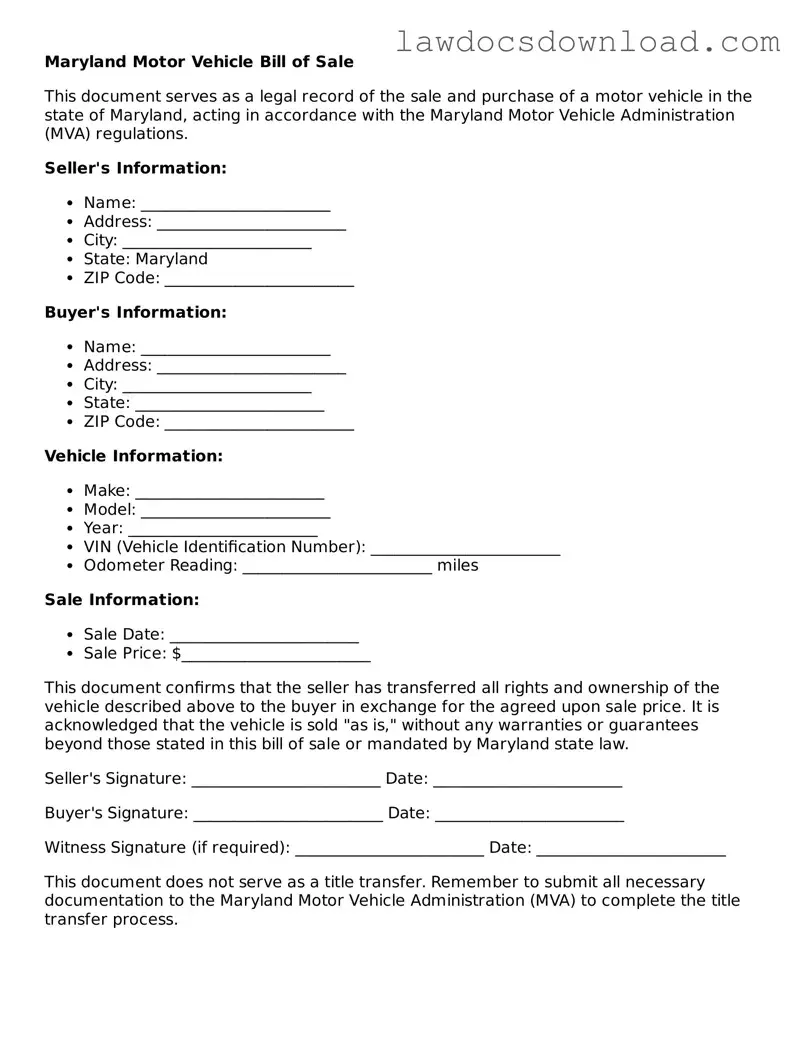Filling out the Maryland Motor Vehicle Bill of Sale form is a crucial step in the process of buying or selling a vehicle within the state. However, a number of common mistakes can lead to delays, disputes, or even legal complications down the line. One key error is neglecting to include all necessary details about the vehicle, such as its make, model, year, VIN (Vehicle Identification Number), and accurate mileage. This comprehensive data helps confirm the identity of the vehicle and is essential for the document to be legally binding.
Another frequent mistake is failing to provide complete and correct information about both the buyer and the seller. This includes their full names, addresses, and contact information. Such details are critical for any future communications or legal requirements. Moreover, leaving these fields incomplete or inaccurate can render the document invalid or lead to significant complications if disputes arise regarding the vehicle's condition or ownership.
Often, individuals forget to specify the sale terms clearly. This part of the form should outline the purchase price, the payment method, and any other conditions agreed upon by the parties involved. Lack of clarity in this section can lead to misunderstandings or disagreements after the transaction has been completed.
Another oversight is not obtaining signatures from both the buyer and the seller in the designated areas. Signatures are vital for the document to have legal standing. Without them, the bill of sale is not considered a legally binding agreement, which might complicate the vehicle’s registration process or the transfer of ownership.
People sometimes skip the step of having the form notarized, depending on the specific requirements of their jurisdiction. While not all states mandate notarization of the bill of sale, checking with local laws and adhering to them can save a lot of trouble in the future. Notarization adds a level of authenticity and can be crucial for the document to be recognized in legal contexts.
A surprisingly common error is not providing a detailed description of the vehicle's condition. This includes any known faults or damages at the time of sale. Failing to disclose this information can lead to disputes or legal action if the buyer finds out about these issues later on. Honesty in this section helps protect both parties and ensures a fair transaction.
Last but not least, neglecting to make copies of the completed, signed bill of sale for both the buyer and the seller's records is a mistake. Keeping a copy is essential for personal records, tax purposes, or to resolve any future issues regarding the vehicle’s history or ownership. It's a simple step that can provide protection and peace of mind for both parties involved in the transaction.

